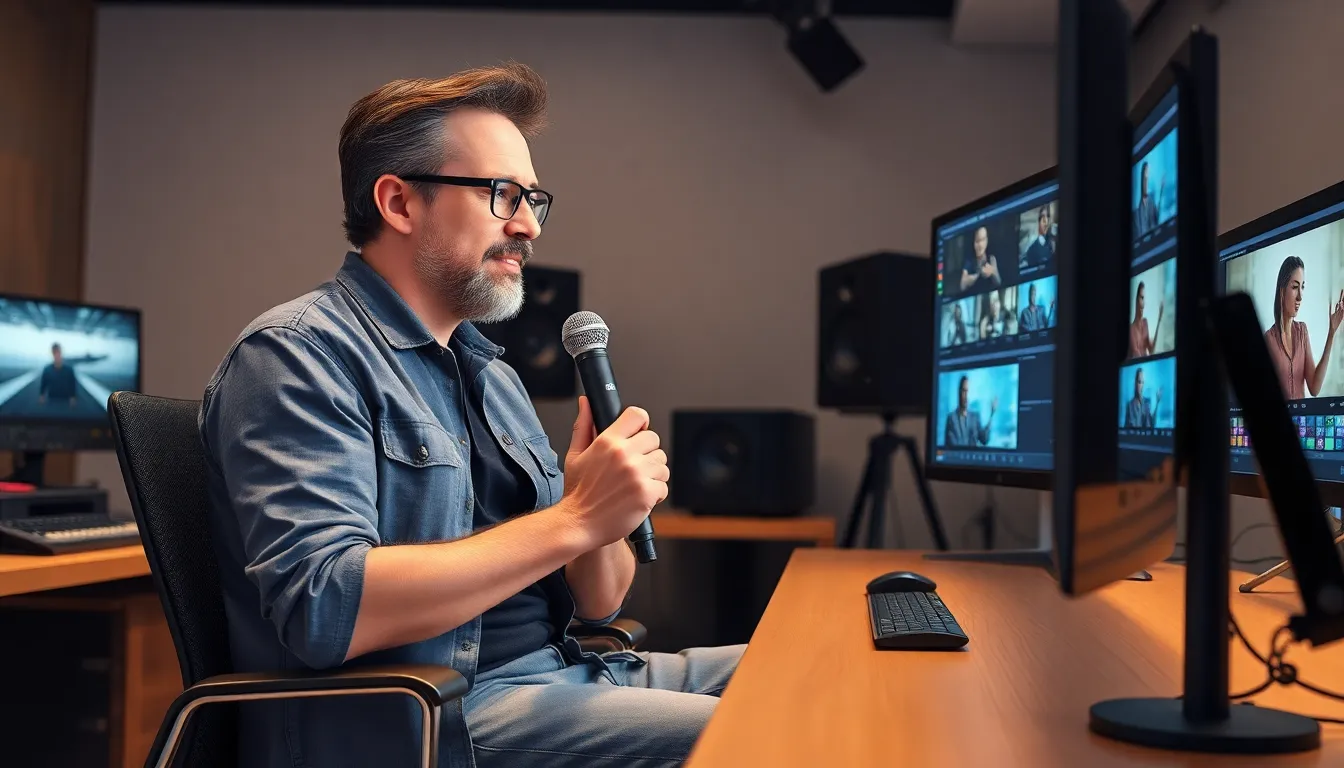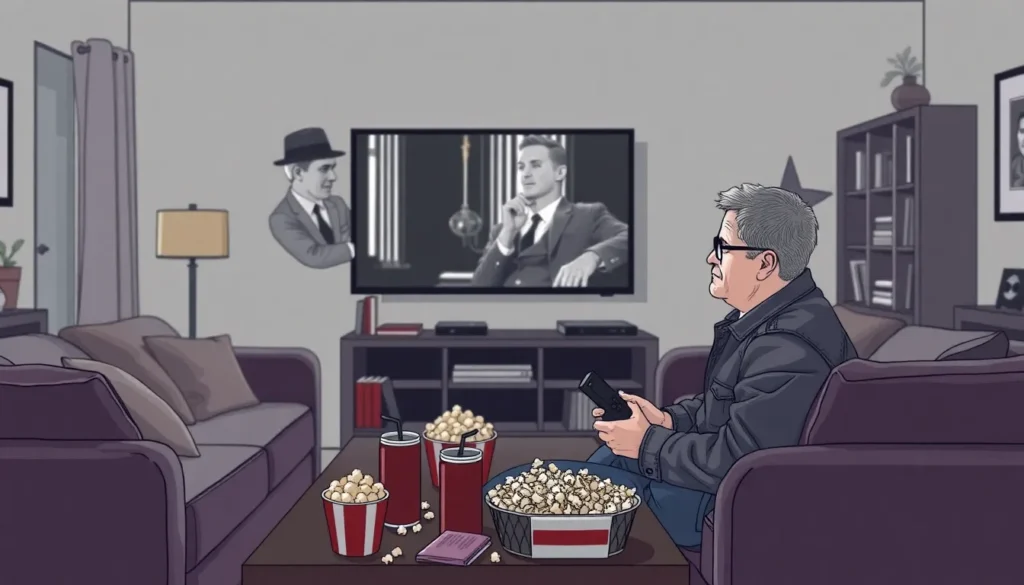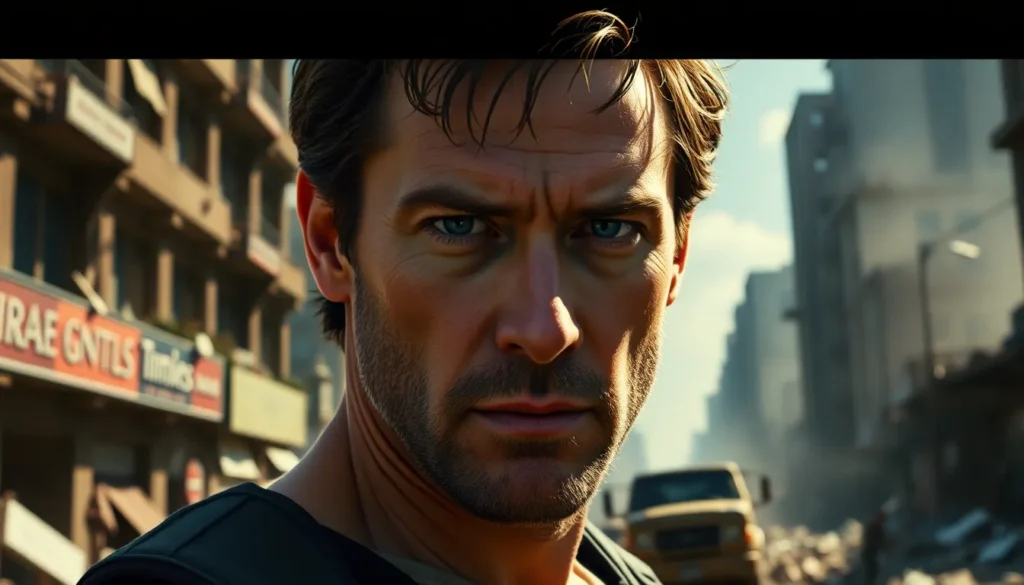Table of Contents
ToggleFilm commentary isn’t just for the hardcore cinephiles; it’s for anyone who’s ever watched a movie and thought, “Wait, what just happened?” Imagine diving into your favorite flick with a witty guide who points out the hidden gems, plot holes, and behind-the-scenes secrets. It’s like having a friend who’s seen the film a hundred times, but instead of annoying you with spoilers, they make you laugh and think.
Whether it’s the subtle nuances of a character’s expression or the absurdity of a plot twist, film commentary adds layers to the viewing experience. It transforms a casual movie night into an engaging exploration of storytelling and artistry. So grab your popcorn and get ready to see films in a whole new light. With the right commentary, even the most predictable rom-com can become a thrilling ride of insights and humor.
What Is Film Commentary?
Film commentary consists of audio tracks that accompany a movie, providing insights and information about the film’s production, narrative, and themes. It serves as a guide, often featuring directors, writers, or actors discussing their creative choices. Commentary sheds light on elements viewers may overlook, enhancing the understanding of character motivations, symbolism, and cinematography techniques.
Many know film commentary as a tool that enriches the viewing experience. Insightful discussions reveal hidden meanings and deepen appreciation for artistic choices made during production. Famous examples include commentaries by acclaimed directors like Martin Scorsese or Quentin Tarantino, who share anecdotes and context regarding their films.
It’s available on various platforms, including DVDs, Blu-rays, and streaming services. Audiences can choose to listen to commentary tracks, allowing them to absorb new perspectives while watching familiar films. Several independent film commentaries also exist, often made by enthusiasts or critics who analyze lesser-known works.
Listeners engage more deeply with the material when they hear commentary, prompting discussions and reflections among viewers. This experience elevates movie-watching from mere entertainment to an explorative journey of storytelling arts. By embracing film commentary, audiences transform routine viewings into engaging explorations that uncover the intricacies of cinema.
Types Of Film Commentary

Film commentary comes in various forms, each providing unique insights into the cinematic experience. Audiences can choose from audio, video, and textual commentaries to enhance their understanding of films.
Audio Commentary
Audio commentary features voice tracks that play alongside the film, offering insights directly from directors, writers, or actors. This format often includes anecdotes about production challenges, actor performances, and behind-the-scenes moments. While viewing the film, listeners can dive deeper into character motivations and narrative choices. Prominent filmmakers like Martin Scorsese and Quentin Tarantino provide engaging commentary, enriching the viewing experience by sharing their thought processes. Available on DVDs, Blu-rays, and streaming platforms, audio commentary allows viewers to connect with the film on a more personal level.
Video Commentary
Video commentary combines visual elements with commentary tracks, allowing viewers to see the film alongside enhanced insights. This format often incorporates clips from the movie alongside commentary from filmmakers and actors. The combination of visuals and narrative creates an engaging way to discuss specific scenes, visual effects, or production choices. Viewers gain context about directorial decisions and storytelling techniques as they watch familiar sequences. Streaming platforms frequently offer this format, making it easier for audiences to enjoy a movie while accessing these enriched perspectives on the craft of filmmaking.
Textual Commentary
Textual commentary consists of written notes, annotations, or essays that accompany the film, providing an in-depth analysis of themes, symbols, and character development. Often found in film guides, websites, or specialized publications, this format allows filmmakers, critics, or scholars to present their interpretations and insights. As audiences read alongside the film, they can explore complex layers of meaning and artistry. Some platforms even allow user-generated textual commentary, fostering community discussions around various films. This interactive approach enriches the viewing experience as readers uncover deeper meanings behind each cinematic choice.
Importance Of Film Commentary
Film commentary holds significant value for enhancing the viewing experience, appealing to both casual viewers and cinephiles. It enriches each movie night by bringing new insights to even the most familiar films.
Enhancing Viewer Experience
Commentary transforms ordinary film watching into an immersive experience. Engaging with filmmakers’ thoughts and anecdotes can deepen the emotional connection to the story. Each discussion reveals layers that may be missed during initial viewings. It fosters appreciation for storytelling techniques and artistic choices. When directors or actors share their motivations, audiences gain a fresh perspective on the narrative. Unique commentary tracks can lead to a newfound excitement for films, encouraging viewers to revisit favorites and discover hidden details.
Providing Insights
Insights from film commentary significantly enhance understanding of cinematic elements. Observations on character motivations, themes, and visual storytelling make films more relatable. Filmmakers often discuss behind-the-scenes processes, shedding light on production challenges and creative decisions. Each commentary track offers specific anecdotes that connect viewers to the film’s context. Notable filmmakers like Martin Scorsese and Quentin Tarantino provide memorable insights that resonate with diverse audiences. Accessible on various platforms, these insights prompt thoughtful discussions, encouraging deeper reflections on the artistry of cinema.
Notable Examples Of Film Commentary
Numerous films provide exemplary commentary, enriching viewer understanding and appreciation.
Classic Films
Classic films often feature insightful commentaries from their creators. For instance, Alfred Hitchcock’s Psycho includes a commentary that examines his directorial techniques and suspense-building methods. Viewers gain deeper insights into the film’s groundbreaking use of music and editing. Another notable classic, Casablanca, presents commentary from film historians, unraveling the film’s cultural impact and themes of love and sacrifice. Insights from legendary filmmakers deepen viewers’ emotional connections to these timeless narratives, making classics more engaging through that extra layer of context.
Contemporary Films
Contemporary films also feature compelling commentary that highlights modern filmmaking practices. Quentin Tarantino’s Inglourious Basterds includes commentary where he discusses character development and his love for cinema. This dialogue allows viewers to understand Tarantino’s artistic influences and narrative choices. Additionally, The Shape of Water provides insights into Guillermo del Toro’s creative process through his commentary track. He reveals the significance of fantasy elements and explores themes of acceptance and love. These perspectives break down barriers, inviting viewers to engage thoughtfully with contemporary storytelling styles.
Film commentary opens up a world of insights that enrich the viewing experience. By exploring the thoughts and processes of filmmakers, viewers gain a deeper appreciation for the artistry behind their favorite films. Each type of commentary—audio, video, or textual—offers unique perspectives that transform ordinary movie nights into meaningful explorations of storytelling.
Whether it’s the classic tales of Hitchcock or the modern narratives of Tarantino, commentary invites audiences to look beyond the surface. Embracing these insights not only enhances enjoyment but also fosters engaging discussions about the intricate layers of cinema. Ultimately, film commentary is a powerful tool that elevates the movie-watching experience for everyone.







